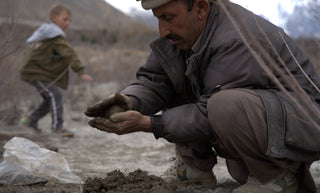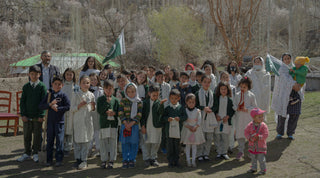The landscapes of Chitral and the wider Hindu Kush & Himalayas (HKH) region once featured rich indigenous forests, Russian olive, sea buckthorn, hawthorn, redberry, rosehip, and many medicinal herbs. For centuries, these forests maintained a harmonious balance between humans and nature, providing healing berries and leaves to local people.
The Role of Indigenous Forests
Globally, natural forests cover about 15% of Earth’s land—supporting millions of plant and animal species. However, deforestation remains a major concern, contributing roughly 15% of global greenhouse gas emissions.
In Pakistan, the situation is critical. According to 2021 data, only about 4.8% (≈36,846 km²) of Pakistan’s land remains forested, far below the global 31% average.
FAO reported Pakistan lost 5.5% of its forest cover between 2010 and 2015, mainly due to agricultural expansion. Meanwhile, natural forest loss continues at ~15,000 ha annually, increasing vulnerability in fragile mountain ecosystems.
North Naturals and Seed Ball Reforestation
As many North Naturals ingredients come from the HKH region, the company is committed to restoring indigenous forests. Our approach?
Seed balls: seeds packed in clay with compost, making them resilient enough to survive harsh mountain winters!
Local communities and the Chitral Forest Department have successfully used seed balls. They report high germination rates and cost-effective reforestation—especially compared to sapling planting.
Recently, a training workshop in Chitral’s Yarkhoon Valley taught techniques in seed ball production: calculating seed rates, checking seed viability, making organic soil, and applying seed balls for planting. Local participants reported:
“This is a new idea of growing plants but makes sense.”
“It should be carried out in late winter so the seed balls are buried, then germinate with spring rains.”
Village elder Hazar Baig noted that seed balls tucked under snow offer a natural germination advantage—emerging with the thaw.
Why Seed Balls Work for the HKH Region
Seed balls offer several benefits over traditional planting:
-
Cost-effective – require less labour and resources.
-
Efficient – higher survival rates reported.
-
Sustainable – seeds adapt naturally to local environments and weather.
They are especially helpful in remote, rugged terrain—easily dropped across barren land and naturally responding to seasonal conditions.
What Comes Next
North Naturals plans to scale this initiative across other vulnerable HKH zones. They aim to:
-
Continue community training and support workshops.
-
Monitor germination and seedling survival over time.
-
Partner with local governments to integrate seed-ball reforestation into regional forestry strategies.
-
Promote the model in other Himalayan communities facing deforestation.
With deforestation still a pressing issue, especially in agriculturally expanding areas, local action is vital. Pakistan’s forests need restoration to ensure ecological health, agriculture stability, and climate resilience.





